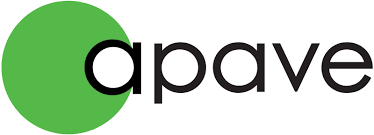APAVE, the risk management specialist, chose the MEDIAplus eLearning solution from Editions ENI to support its office application migration project. This major project involved all the group’s employees and required careful preparation, including an e-learning training component. APAVE told us about its key success factors…
APAVE, with 9,650 employees, a turnover of 672 million Euros in 2010, and over 200,000 customers, is a leading risk management specialist in France (130 agencies, 31 laboratories and testing centres, 143 training sites etc.) and also abroad (40 subsidiaries and holdings).
Therefore, when the decision was made to migrate all its workstations in France to a new version of Microsoft Office, it was clear that its users needed support to become operational as quickly as possible.
“With over 8,000 employees involved in this migration and over 100 management software programs affected by it, we soon had an idea of the stakes of this major project, and prepared for it carefully,” explains Michel Berthenet, Microsoft Office 2007 E-learning Project Manager at Apave.
Before the migration, office application training was mainly given in the classroom with the aim of updating employees’ skills. However, when it came to the migration, the context was different – all the employees were involved and above all, the training had to take place within a specific period of time. The challenge was to synchronise the training with the workstation upgrades, so that the employees would quickly become proficient in the new software, discover its new features and become operational in a short space of time.
“We had to deal with a variety of situations, with some employees who were totally unfamiliar with the new version of Microsoft Office, others who had already used it on a personal basis, etc.” he adds. “So we wanted to find the most flexible training solution possible to meet our employees’ needs as fully as possible, in a fairly short time frame of course,” Mr Berthenet continues. Apave therefore naturally turned to e-learning mode training. After analysing the various service providers, Apave chose the MEDIAplus eLearning solution from Editions ENI. “We were particularly impressed by the option to customise the training programmes according to user profiles, and by the great flexibility of the product,” he explains.
MEDIAplus eLearning is unique in that it offers learning in a real environment, with immediate results analysis. This way, the learner can perform operations in the way they want (right-click, keyboard shortcut, drop-down menu etc.) as they are using a real program and not a reproduction of the program.
The migration project consists of an initial experimental phase carried out on pilot sites, to validate the process and model the training response, followed by a deployment phase on all sites.
This experimental phase was completed with a representative group of users (occasional users, experienced users and experts in each of the Word, Excel and PowerPoint programs), distributed geographically. These users had two workstations, one equipped with the new version of Microsoft Office, the other with the old version. “The experimental phase enabled us to find solutions for IT problems that might come up during deployment, and to define training module content by user profile type,” continues the E-learning Project Manager.
“We then launched the deployment phase with a clearly stated aim: all the agencies, business units etc. had to be operational two months after the deployment was launched!” he explains. Several resources were implemented to achieve this ambitious goal:
– a deployment schedule sent to all employees to inform them of the deployment period
– a “required training” schedule agreed in advance with manager n+1
– close to the date of deployment, provision of information by the project group and manager
– an e-learning training programme including a shared core module, and a specific module for each software program with MEDIAplus eLearning, to help users become proficient quickly. A leaflet about the main new features of the new version was given to each employee. Users also had access to the Editions ENI MEDIApage digital course materials.
This shared core module is designed to explain the context and issues surrounding migration, and also to introduce users to the MEDIAplus eLearning solution interface. This module must be taken before the effective migration of the workstation, so that on the day the user takes the MEDIAplus eLearning training modules in the new version of Microsoft Office.
Each MEDIAplus eLearning programme has 4 stages: an initial stage about essential software basics, a 2nd knowledge assessment stage, followed by a set of hierarchical modules that take account of the knowledge assessment, and a final test of users’ knowledge, recommended for “experienced” and “essential” profiles, and compulsory for the “advisor” profile.
“The advantage of the MEDIAplus eLearning programmes is that the learner can study them at their own pace, on their own workstation, according to their needs. What’s more, they have access to them for 3 years, so they can easily return to a topic they want to revisit, for example,” continues Mr Berthenet.
Apave also decided to create “deployment coaches” and “advisor coaches” to accompany this migration. The deployment coaches are present on each site, with the task of responding to any initial technical problems that may arise when the new version is installed on the user’s workstation. Then the advisor coaches, who have studied the MEDIAplus eLearning training modules, take over from them and answer any questions about the functionality of the Word, Excel and PowerPoint programs.
Initial feedback is positive, and the deployment process is running smoothly. “It is clear that one of the key success factors for us was the experimental phase. In fact, associating with a user panel from the outset enabled us to create training programmes adapted to the needs and profiles of each user,” explains Michel Berthenet.
“What’s more, the life-size mini-deployment on two pilot sites enabled us to identify and solve any technical problems that we could have encountered on a wider scale,” he adds.
“Finally, we should not neglect the human dimension, which is a vital aspect. It is important to provide training support, in order to create direct exchanges between users and coaches, which makes the training more personal. Our advisor coaches are there for that and it’s a real bonus,” he concludes.

